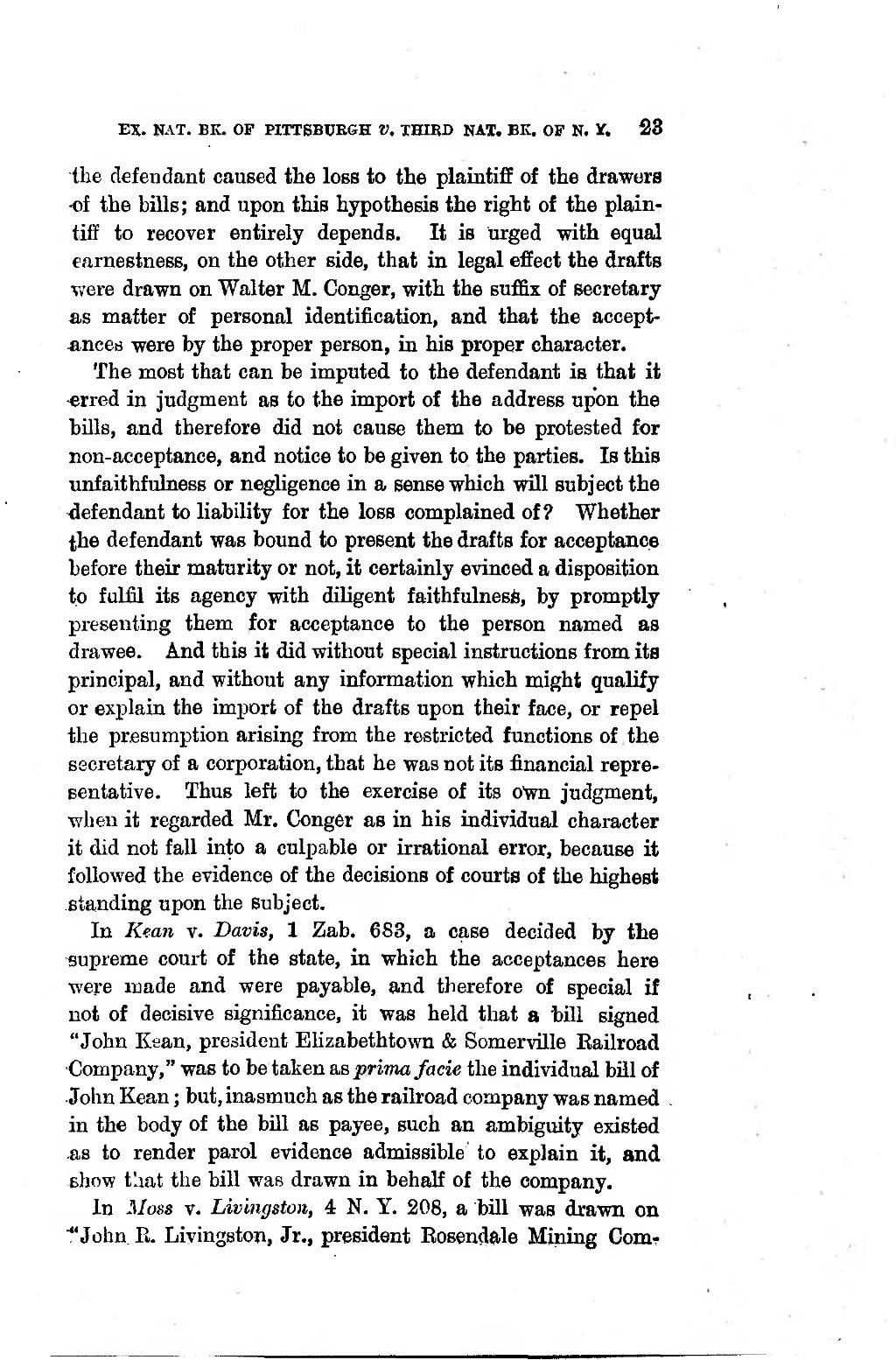EX. NAT. BK. OF PITTBBUEGH V. THIRD NAT. EK. OF N. ï. 23 �ihe defendant caused the loss to the plaintiff of the drawara ■of the bills; and upon this hypothesis the right of the plain- tiff to recover entirely depends. It is urged with equal earnestness, on the other side, that in legal effect the drafts Vï-ere drawn on Walter M. Conger, with the sufEix of secretary as matter of personal identification, and that the accept- aneeri were by the proper person, in his proper character. �The most that can be imputed to the defendant ia that it erred in judgment as to the import of the address upon the bills, and therefore did not cause them to be protested for non-acceptance, and notice to be given to the parties. Is this unfaithfulness or negligence in a sense which will subject the defendant to liability for the loss complained of ? Whether the defendant was bound to present the drafts for acceptance before therr maturity or not, it certainly evinced a disposition to fulfil its agency with diligent faithfulnesô, by promptly preseiîting them for acceptance to the person named as drawee. And this it did without special instructions from its principal, and without any information which might qualify or explain the import of the drafts upon their face, or repel the presumption arising from the restricted functions of the secretary of a corporation, that he was not its flnancial repre- sentative. Thus left to the exercise of its O'wn judgment, when it regarded Mr. Conger as in his individual character it did not fall into a culpable or irrational error, because it followed the evidence of the decisions of courts of the highest standing upon the subject. �In Kean v. Davis, 1 Zab. 683, a case decided by the supreme court of the state, in which the acceptances here were made and were payable, and therefore of special if not of decisive significance, it was held that a bill signed "John Kean, presideat Elizabethtown & Somerville Eailroad Company," was to betaken && prima facie the individual bill of John Kean ; but,inasmuch as the railroad company was named in the body of the bill as payee, such an ambiguity existed &a to render paroi evidence admissible to explain it, and show taat the bill was drawn in behalf of the company. �In Moss V. Livlngston, 4 N. Y. 208, a bill was drawn on ■"John R. Liyingston, Jr., president Rosendale Mining Gom- ����
